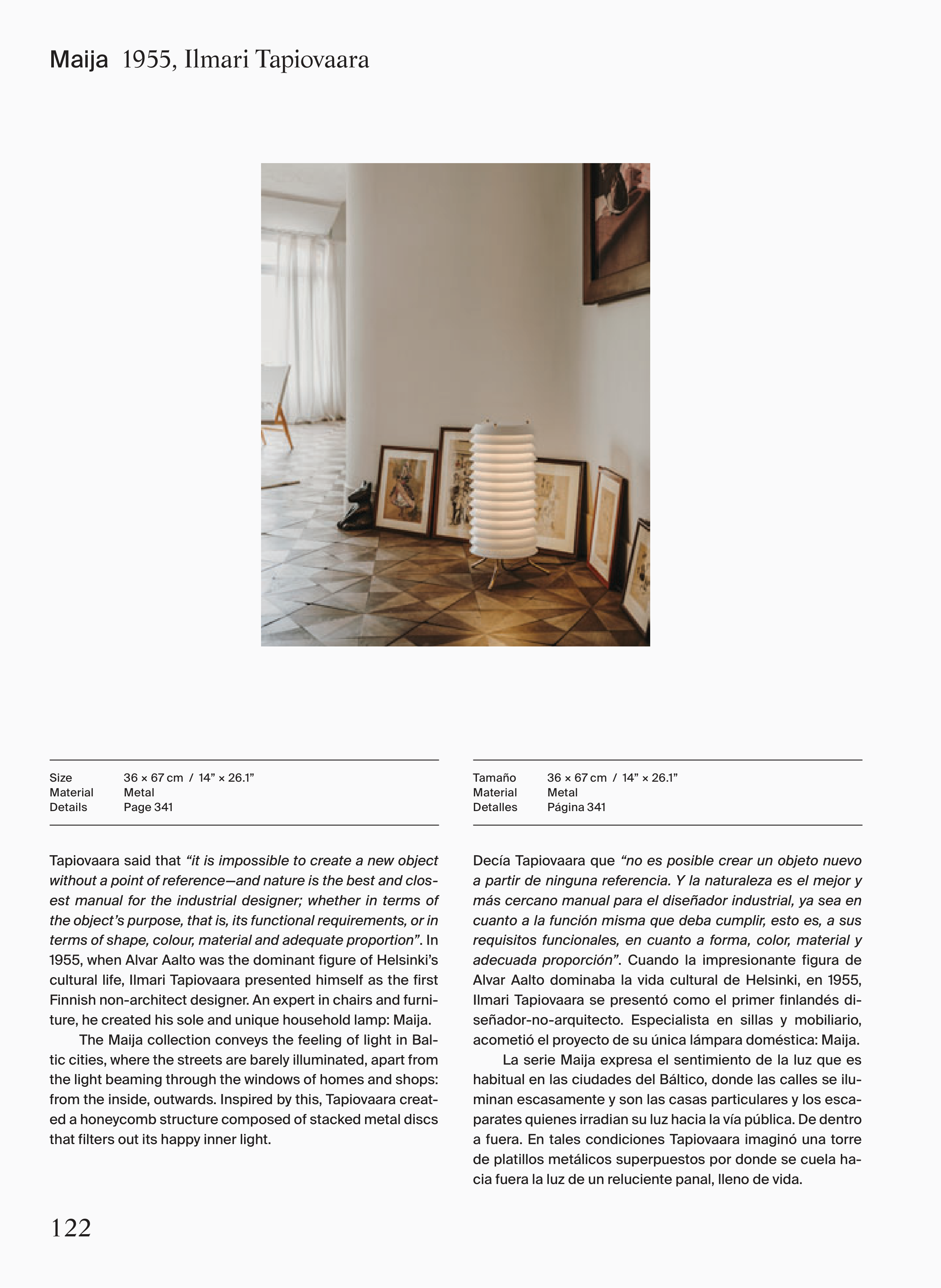122
Maija 1955, Ilmari Tapiovaara
Size
36 × 67 cm / 14” × 26.1”
Material
Metal
Details
Page 341
Tapiovaara said that “it is impossible to create a new object
without a point of reference—and nature is the best and clos-
est manual for the industrial designer; whether in terms of
the object’s purpose, that is, its functional requirements, or in
terms of shape, colour, material and adequate proportion”. In
1955, when Alvar Aalto was the dominant figure of Helsinki’s
cultural life, Ilmari Tapiovaara presented himself as the first
Finnish non-architect designer. An expert in chairs and furni-
ture, he created his sole and unique household lamp: Maija.
The Maija collection conveys the feeling of light in Bal-
tic cities, where the streets are barely illuminated, apart from
the light beaming through the windows of homes and shops:
from the inside, outwards. Inspired by this, Tapiovaara creat-
ed a honeycomb structure composed of stacked metal discs
that filters out its happy inner light.
Tamaño
36 × 67 cm / 14” × 26.1”
Material
Metal
Detalles
Página 341
Decía Tapiovaara que “no es posible crear un objeto nuevo
a partir de ninguna referencia. Y la naturaleza es el mejor y
más cercano manual para el diseñador industrial, ya sea en
cuanto a la función misma que deba cumplir, esto es, a sus
requisitos funcionales, en cuanto a forma, color, material y
adecuada proporción”. Cuando la impresionante figura de
Alvar Aalto dominaba la vida cultural de Helsinki, en 1955,
Ilmari Tapiovaara se presentó como el primer finlandés di-
señador-no-arquitecto. Especialista en sillas y mobiliario,
acometió el proyecto de su única lámpara doméstica: Maija.
La serie Maija expresa el sentimiento de la luz que es
habitual en las ciudades del Báltico, donde las calles se ilu-
minan escasamente y son las casas particulares y los esca-
parates quienes irradian su luz hacia la vía pública. De dentro
a fuera. En tales condiciones Tapiovaara imaginó una torre
de platillos metálicos superpuestos por donde se cuela ha-
cia fuera la luz de un reluciente panal, lleno de vida.


